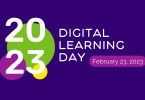By Ekua Abudu
So many things could be said about the times that we live in, about how we connect and communicate and the manner in which all these factors are shaping the world around us. Although most of what we know about life remains the same, there is always an evolution of the things that make up the lives we lead. Technology is one of the many great evolutions of the twenty first century. It has influenced many aspects of our lives such as health, communication, leisure and even now and most strongly, education.
Education is a fundamental part of human existence. This occurs through multiple avenues, but most commonly through the school. The school is where we learn new things and develop on the existing; where we form vital information about ourselves and our role in the world.
Many scholars have ranked education as priority in the way that research continues to show that the world is yet to uncover all the possibilities of technologies. In light of this, it becomes critical to not only understand technology and its many benefits, but to also use it to our advantage. After all, almost all operations in the modern world are closely aligned with technology.
Many policy makers and academics might suggest that technology in the classroom has its own demerits, however, if the focus is on how seamless it is to incorporate experiments, research and learning, then it becomes worth it. In these times where many children are already in possession of devices, instead of allowing the devices become a distraction to them, teachers could use them as educational tools. That way, the infamous work and play balance is struck- children get to learn more, using their most cherished device.
Tablets and smartphones are the new learning agencies. For many schools, these devices are provided to the students and for some, the students are required to bring their own personal devices. Whatever the case may be, being armed with an internet-enabled device can be of more benefit to learning and development than is recorded.
Technology based learning is a critical introduction to the concept of multiple learning, whereby children are building on their knowledge of software just as they are acquiring information about a subject or the other. It allows children stay abreast of all that is happening around the world while in the comfort of their classrooms. Having access to fresh information is essential, as it keeps students ahead of their peers. A child who is in possession of useful information about the world is more likely to make well informed decisions. In addition to this, some of the information for learning that are not available in textbooks could be accessed online through digital books, quizzes, apps and cyclopedias.
Technology also propels a fun classroom engagement and makes teaching and learning more interactive and less theoretical. Only a small number of schools have adapted to this modern, efficient learning style. Greenwood House School supports technology learning with an up-to-date, secured network infrastructure that enables users enjoy the internet. A secure Wi-Fi setting ensures that children and their devices are not exposed to harmful threats and do not also have access to matured content. This restriction will also serve as an assurance for parents who are skeptical over their children’s access to the internet.
Children also learn how to train themselves not only on how to use technology but also on how to care for the device in their care. The ownership instils a sense of responsibility that is beneficial for a child’s growth as well as sharpen their preparedness outside the school setting.
It has been said many times that the world is a global village, and as humans continue to progress, technology will remain a life skill. On account of this, the value of technology in classrooms cannot be overstated. Outside the classroom, technology is dominating different sectors. It has become a prerequisite to dominate major aspects of human life. Therefore, parents should emphasise and prioritise learning institutions that encourage their children’s use of technology.
When children are exposed to technology in the classroom, they gain an added advantage in the highly competing world. Digital citizenship allows children develop other skills that may have gone unnoticed. Greenwood House School recognises this from an early stage, therefore boosting learning abilities among children that will prepare them for the outside world. Indeed, the heights to which we require technology to function through our day-to-day activities can only keep getting stronger.








